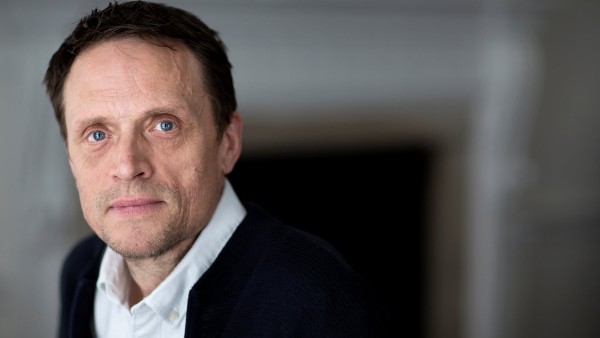George Osborne’s autumn statement appears to be is a sophisticated package; written to maximise advantage to the Conservatives with a strong ideological undertow, but also containing a popular top line policy - on stamp duty - that has already commanded cross-party support.
Although, along with just about every other commentator, I don't think the Chancellor can actually deliver the targets of spending reduction he published yesterday, the statement confirms what we already knew: unless we start very soon to see a substantial fiscal dividend from economic growth, public services face many more years of trying to meet growing demands and rising expectations with frozen or falling budgets. Indeed the statement adds an extra year to the austerity horizon meaning major cuts will still be being implemented in the immediate run up to the election after next. Bu already, for local services in particular, the fat has long gone, the flesh has been sliced and the vital organs are starting to fail.
Mr Osborne’s unwillingness to recognise this or to accept any responsibility for how his strategy will impact on public servants and citizens is an abnegation of his responsibility as a public servant, albeit one that will be echoed by other political leaders with no desire to disturb voters with difficult truths. The survival of the public domain relies on a further significant shift of responsibility from the state to the citizen. Political expediency and the failure of the Big Society means no national leader will be inclined to ‘fess up to that before next May. If we need a different order of public leadership in these challenging times we will have to focus elsewhere.
Over recent days I have looked at public service reform from a bewildering number of angles. I attended the first national conference for the Government-funded 'What works centres'. I chaired a Parliamentary roundtable event on design for policy. I also chaired the launch of the Public Service Transformation Challenge Panel report, sponsored by DCLG.
On top of this I was MC of an event to publish the final report of Islington Employment Commission and the keynote speaker at the launch of the Croydon Fairness Commission. Finally, I chaired the second in our series of seminars held in conjunction with the global education services provider Pearson to discuss the idea of efficacy, this time in the context of school improvement.
Normally this would provide material for several blog posts. For while there was value in all these initiatives I have misgivings about each. The general approach of the What Works centres is overly technocratic (which is perhaps inevitable) and lacking a convincing model of change (which is less excusable).
The design for policy approach is fascinating and progressive but can feel overblown given the paucity of powerful examples of impact at scale and that, on closer inspection, design for policy isn’t all that different from the best examples of traditional policy making.
The recommendations of the Public Service Transformation Panel were hard to dispute but the report didn’t really get to grips with why implementing them seems so hard and, anyway, the idea of ‘transformation’ is surely a misnomer for a set of practices – a focus on citizens and more effective inter agency collaboration, for example - which need to be seen not as one-off changes but as a continuous discipline.
It is heartening that local authorities like Islington and Croydon are looking to provide a broader convening role focussed around the needs of citizens. However, in practice (and it is too early to speak for Croydon) I find that councils have rarely thought deeply enough about how to provide a qualitatively different kind of leadership, one that is based on influence and generosity, not control.
And while I continue to be impressed by Pearson’s commitment to ensuring that their products and services improve people’s lives through learning, it is clear that efficacy is a more powerful tool for asking questions than providing definitive answers. (Indeed, Pearson’s growing awareness that efficacy is not about imposing a single ‘one best way’ perspective on complex challenges contrasts with the rather reductive world view of the What Works initiatives.)
As I rushed from initiative to initiative the sense that something fundamental is lacking in them all grew and grew. The length of time since my last post is witness to my inability to put my finger on what that something is. Now I think I may have found it. My colleague Anthony Painter (who leads the RSA’s growing portfolio of work on institutional reform) directed me to a new paper published by the Stanford Social Innovation Review. ‘The Dawn of System Leadership’ is by the impressive team of Peter Senge (recently interviewed in the RSA Journal), Hal Hamilton and John Kania.
The article helped me identify that missing ingredient. In short, the need for a different order of leadership, something to which reformers often pay lip service but which I see little sign of being fully appreciated. There are two contrasting problems with a focus on leadership: first is that it reinforces a hierarchical model of change, second that ‘leadership’ is a proxy for an ill-defined bundle of virtues - commitment, wisdom, authority. The value of the Stanford Review paper is that it provides a compelling and concrete account of the components of the kind of leadership needed to solve tough problems; problems like reforming public services in a context of shrinking budgets and rising demands.
Senge et al identify three core capabilities:
• The ability to see the larger system
• An ability to foster reflection and more generative conversation
• A capacity to shift the conversation from reactive problem solving to co-creating the future.
Exhorting a new paradigm is all very well but why might we hope for new leadership? Through their own experience and the many case studies they cite the Stanford authors argue that the hunger for system leadership and the human capacity to provide such leadership is growing. This perspective chimes with the progressive human development theories of figures like Robert Kegan and Ken Wilbur.
The problem is not our receptivity or capacity: it is the organisational forms and norms that put huge barriers in the way of system leadership and, more profoundly, blind us even to its possibility.
Senge et al summarise their argument in one sentence:
The deep changes necessary to accelerate progress against society’s most intractable problems require a unique type of leader – the system leader, a person who catalyses collective leadership.
Although this insight is negatively articulated in the ever growing disdain of citizens towards the political establishment I don’t expect it to be acknowledged anytime soon in the actions and rhetoric of national politics. Yet, without system leadership in our services and localities the next few years will see the public domain hollowed out ever further.
Related articles
-
The levelling up conundrum
Al Mathers Anthony Painter
How can the government tackle the UK's chronic and enduring regional inequalities? We explore three plausible areas of focus for levelling up: economic development, social cohesion, and community power and identity.
-
Hierarchy: can’t live without it, can we live with it?
Matthew Taylor
In the ninth of a series of posts about ‘coordination theory’ - a set of ideas about human motivation, organisational and social change - the form of 'hierarchy' is analysed. Hierarchy is a form which we seem in equal parts to resent and to need.
-
Why a long-term view should be at the heart of public services
Ian Burbidge
Decisions made today shape the lives of future generations. It is vital we take a long-term perspective when it comes to planning public services.




Join the discussion
Comments
Please login to post a comment or reply
Don't have an account? Click here to register.
Its very illuminating that while Senge et al take the conversation one way, the long held , empirically unvalidated view beloved of the media that leadership is about 'sleeves rolled up' continues to dominate (witness the coverage given to the CEO of Tesco 'taking over' day to day running) and getting 'things done' seems to be the justification in the public domain for saying any leader more than a pittance in salary. I have long argued that this 'factory based' paradigm that holds sway in the media, politics and the popular imagination is not neutral; it does positive harm , yet its failure is displaced, other spurious factors are identified and spun and politicians end up arguing pointlessly ad nauseam for endless manufactured regime changes. Had I had the time, money and maybe the intellect, I always fancied doing a Phd looking at the models of leadership that actually inhabit the minds of our political leaders as agate the advanced thinking of Senge and others in our best Business Schools. I would put my money on my identifying a veritable chasm between the two!